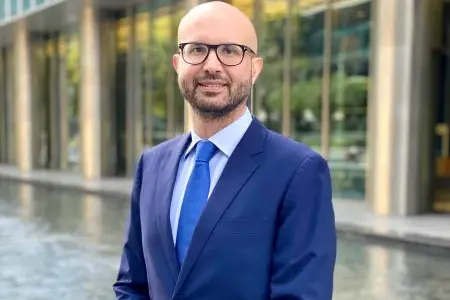PHOTO
Dubai: According to a ‘2020 UAE Security and Savings’ survey by global consultancy, Mercer, nearly half (45 percent) of expat employees in the UAE either have no plans to ensure an adequate standard of living after retirement or plan to work beyond the retirement age to ensure continued income.
The study further uncovered a lack of financial awareness among respondents with 61 percent reporting no long-term savings at all and 43 percent expecting their end of service benefits to meet their long-term financial needs.
Commenting on the results, Tarek Zouiten, Retirement Business Leader at Mercer UAE said: “With an increasing number of expats remaining in the region for longer durations and closer to retirement age, planning for retirement is becoming a more pressing issue. The number of expat employees in the UAE who are not prepared financially for retirement is very concerning. Employees must understand that the current end of service benefits are far from enough to ensure an adequate standard of living post-retirement. For instance, under the current programme, serving a company for 25 years will only provide two years of basic salary, however, an average person will need 12 times their total salary to maintain a decent standard of living post-retirement. Ensuring UAE expats are better prepared for post-retirement challenges will require a fundamental mind shift among employees which can be achieved with financial education and progressive regulations like the DEWS recently employed in DIFC”.
The study, which surveyed 50 senior decision makers and 500 workers based in the UAE, was conducted to gain a better understanding of the financial concerns and needs of employees in the country and provide an insight into the range of benefits that workers currently have access to through their employers. According to the report, only 24 percent confirmed access to pension or saving schemes with their current employers. Furthermore, four out of five employees perceived a lack of concern from their employers about their financial wellbeing, resulting in lower satisfaction and loyalty levels. The Mercer survey also found that 99 percent of UAE employees expressed the need for improved savings and investment benefits, while 81 percent claimed they would be less likely to leave their current employer if they were offered such benefits.
Although employers recognise the importance of offering enhanced benefits, the key impediments include the belief that employees are better off making their own financial decisions and the lack of resources to manage such benefits. UAE employers also continue to view tax-free salaries, medical insurance and enhanced end-of-service benefits as the top employee benefits.
“Assisting expats with financial advice, education and tools to help ensure they can enjoy the same quality of life attained here when they return to their home countries may generate good will, help build loyalty and ultimately ensure longer in-country tenure. The UAE government also has a key role to play in further educating the public on the importance of savings and encouraging employers to adopt incentives that encourage the right behaviors within their workforce,” added Mr. Zouiten.
From a targeting perspective, the survey found that expats who have been in the region for seven or more years and plan to stay for another seven or more years may be more receptive to the concept of holding long-term savings and investments in the region. This group is more likely to belong to the Gen X cohort and married with children and therefore have greater reason to plan ahead. The workers surveyed expected to retire at an average age of 57.2 with 54 percent expecting to retire between the ages of 55-64.
Mercer recently partnered with DIFC as an Investment Advisor in the launch of the DIFC Employees Workplace Savings Plan (DEWS) introducing a progressive end-of-service benefits plan to restructure the currently defined employee benefit plan into a funded and professionally managed, defined contribution plan. The initiative also offers a voluntary savings plan, allowing employees working in the DIFC to secure their financial future with ease.
© Press Release 2020Disclaimer: The contents of this press release was provided from an external third party provider. This website is not responsible for, and does not control, such external content. This content is provided on an “as is” and “as available” basis and has not been edited in any way. Neither this website nor our affiliates guarantee the accuracy of or endorse the views or opinions expressed in this press release.
The press release is provided for informational purposes only. The content does not provide tax, legal or investment advice or opinion regarding the suitability, value or profitability of any particular security, portfolio or investment strategy. Neither this website nor our affiliates shall be liable for any errors or inaccuracies in the content, or for any actions taken by you in reliance thereon. You expressly agree that your use of the information within this article is at your sole risk.
To the fullest extent permitted by applicable law, this website, its parent company, its subsidiaries, its affiliates and the respective shareholders, directors, officers, employees, agents, advertisers, content providers and licensors will not be liable (jointly or severally) to you for any direct, indirect, consequential, special, incidental, punitive or exemplary damages, including without limitation, lost profits, lost savings and lost revenues, whether in negligence, tort, contract or any other theory of liability, even if the parties have been advised of the possibility or could have foreseen any such damages.




















